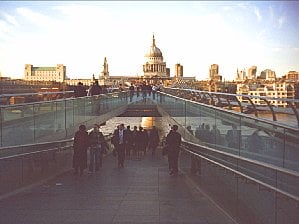m (category) |
|||
| Line 35: | Line 35: | ||
== News and comment == | == News and comment == | ||
'''2019''' | |||
'''May 6''' The Guardian view on London and England: a deep divide <ref>[https://www.theguardian.com/commentisfree/2019/may/06/the-guardian-view-on-london-and-england-a-deep-divide The Guardian]</ref> | |||
'''2017''' | '''2017''' | ||
Revision as of 15:23, 8 May 2019
|
Commuting and migrationCommuting has major impacts on the character of each administrative region. This has implications for communicating Sustainability. Messages that are primarily about where people live may be less effective when directed at people working in different areas, and vice versa. It is easier for people to divorce the consequences of their actions when they are physically disconnected from where those consequences will occur. Migration and commuting between administrative regions, for example retirement migration, contributes to the character of local economies. Whilst some areas may be economically more dynamic and resilient, others, for example coastal communities can, in effect pay the costs. The carbon footprint of commuting patterns rarely seem to be highlighted. When the administration of the whole region is split it is easier for this to seem to be someone else's problem. Planning and transport - a democratic deficit?Expansion of Heathrow is just one of the most obvious examples of an issue which affects all parts of the South East. Although there may be some administrative arrangements there is arguably a democratic deficit, especially in relation to planning issues affecting the whole of the South East. Firstly very few people (ordinary citizens and communities) may be aware of any administrative arrangements or bodies which tackle such issues, and even fewer may feel included or represented by any such arrangements. As with the issue of carbon footprints, split administrative arrangements provide scope for buck passing. It is also easier for administrations to 'divide and rule' any opposition to their plans. For example on issues such as housebuilding or major transport infrastructure projects people advocating more sustainable solutions whether for the city or the countryside are easily portrayed as NIMBYS and the enemies of each other (especially if sustainability groups from different administrative regions don't talk to each other enough). Other aspects of interdependenceWater; Food ; Environment quality - pollution, air quality, etc. |
News and comment2019 May 6 The Guardian view on London and England: a deep divide [1] 2017  Kent targeted to take huge housing hit, Sep 27 [2] 2015  Rural sustainability UK: From fringe to fork – food and the Green Belt, Sep 29 [3] 2014 London and southeast England most at risk of rising deaths due to climate change, March 23 [4] 2013 The Great Divide – building bridges between cities and their rural hinterlands, [5] March 1 2007 "The TCPA believes that to achieve sustainable development there needs to be greater cross boundary co-operation between outer London boroughs and adjoining regions and strongly supports a clear and robust framework for climate change and sustainable energy." [6] June 19 See asloInterwiki linksWikipedia: City region, London commuter belt External links
References Template:Attrib sca ref |

